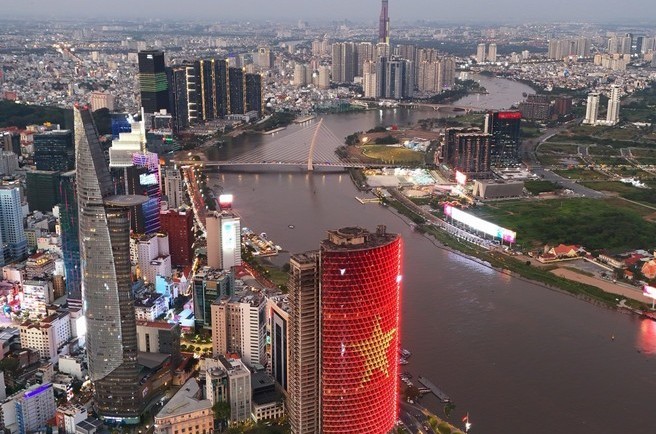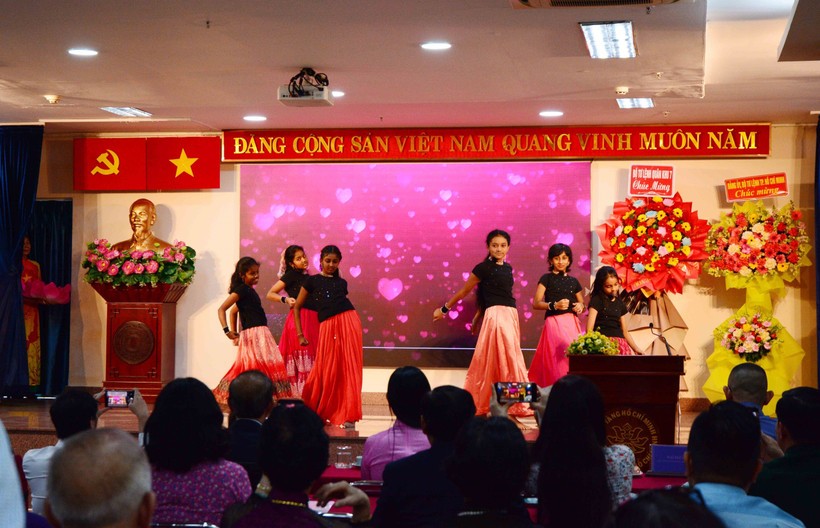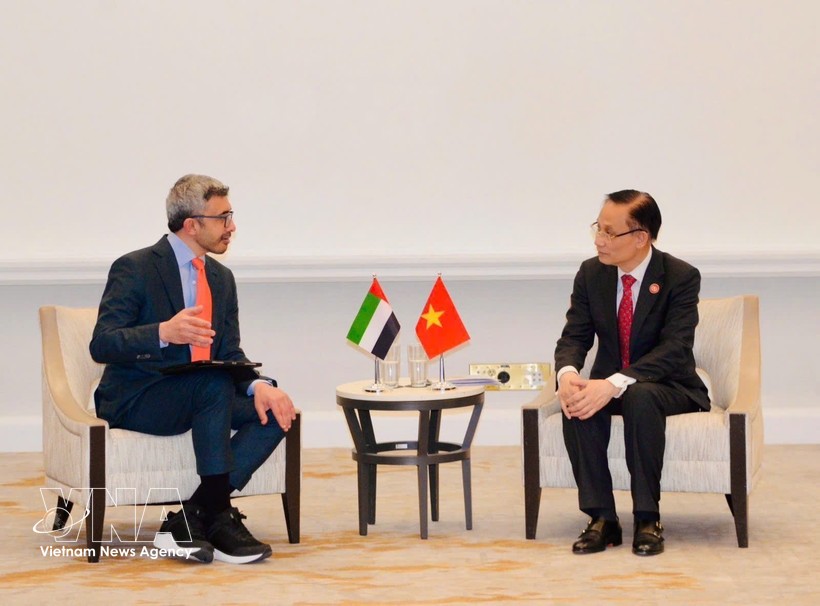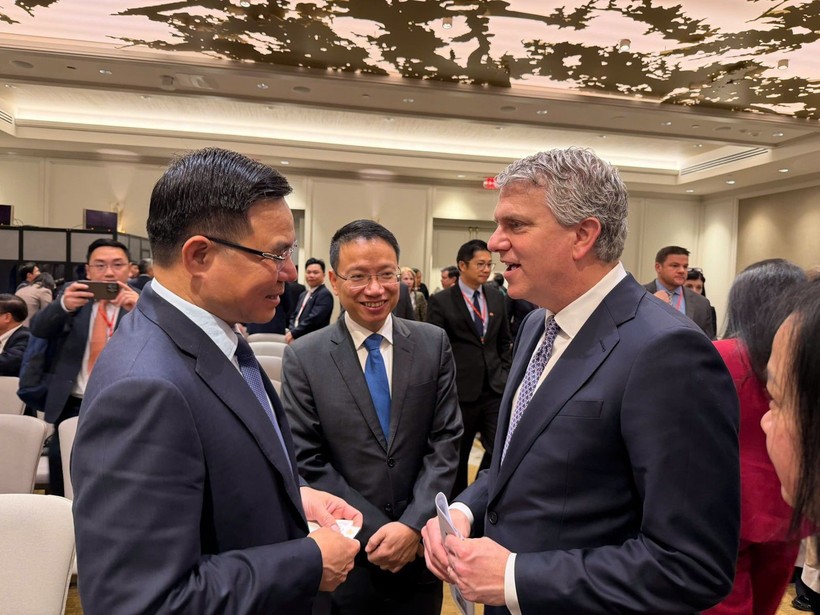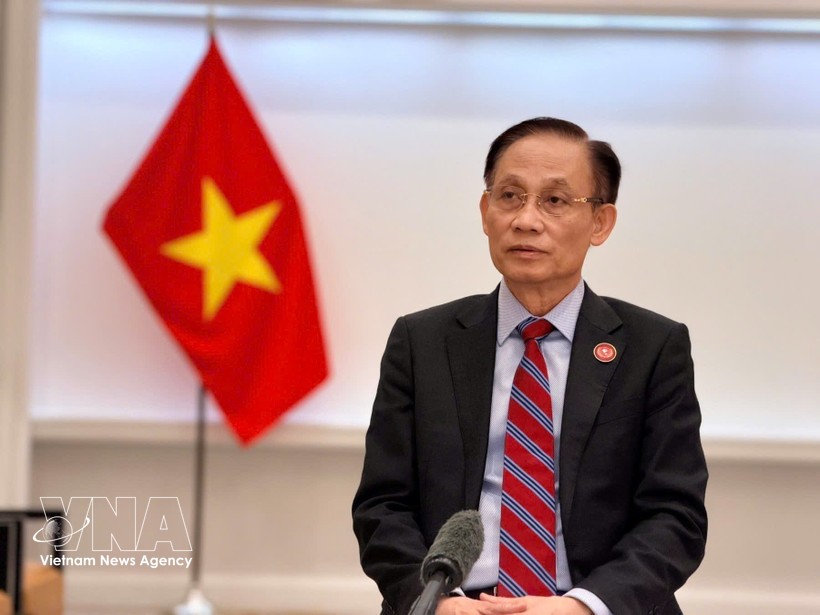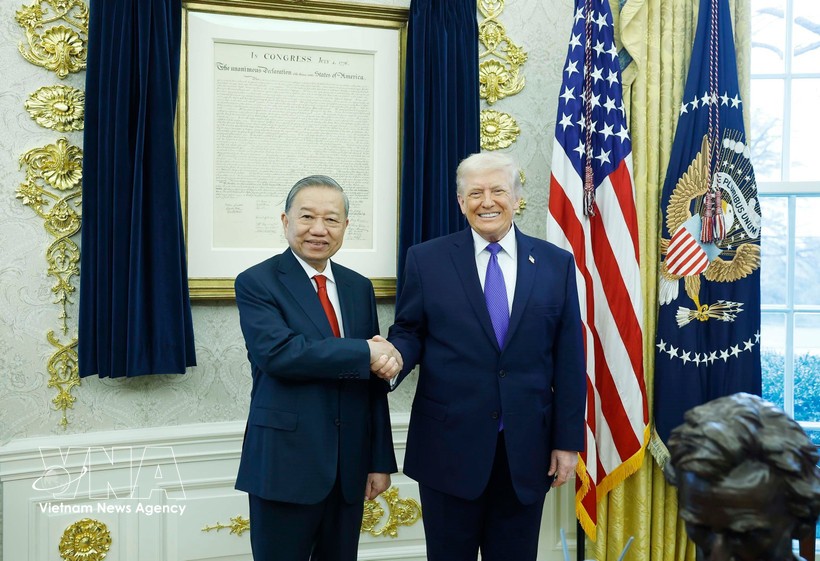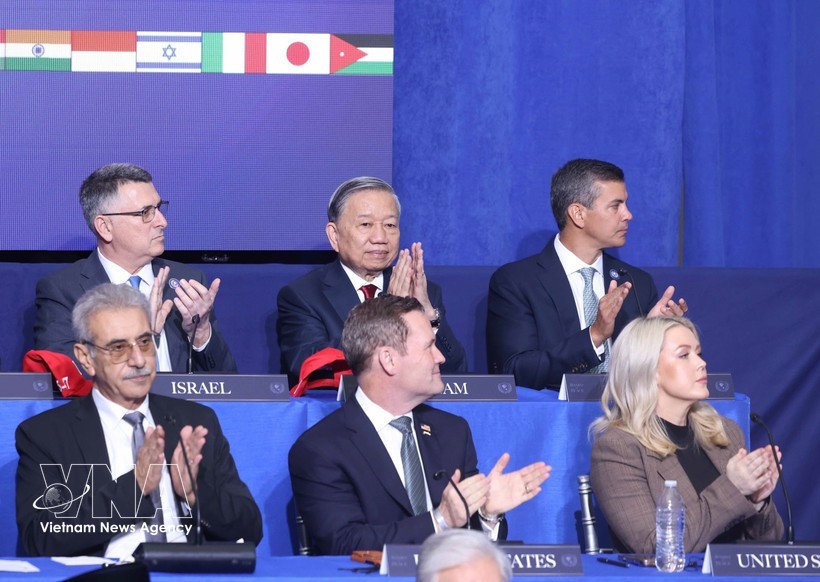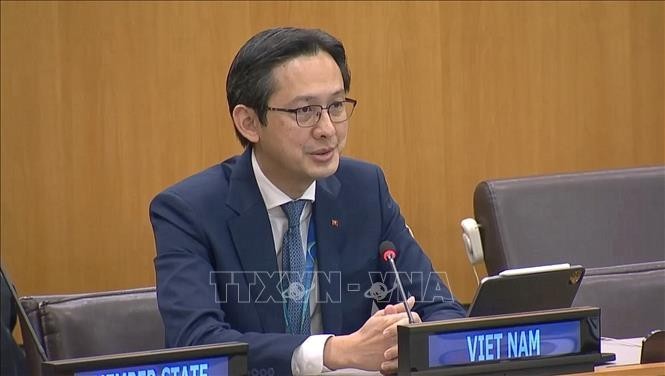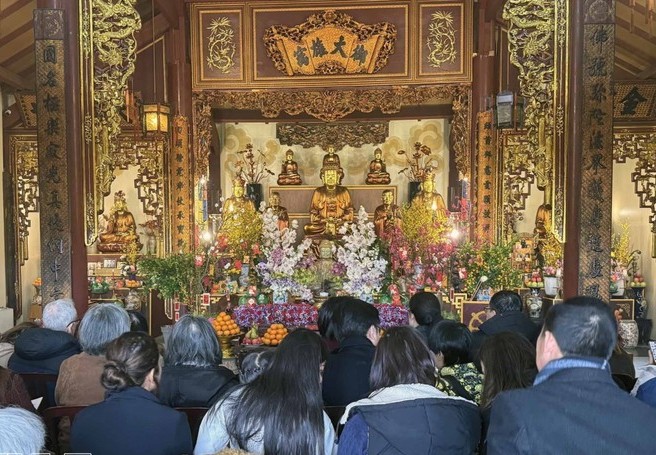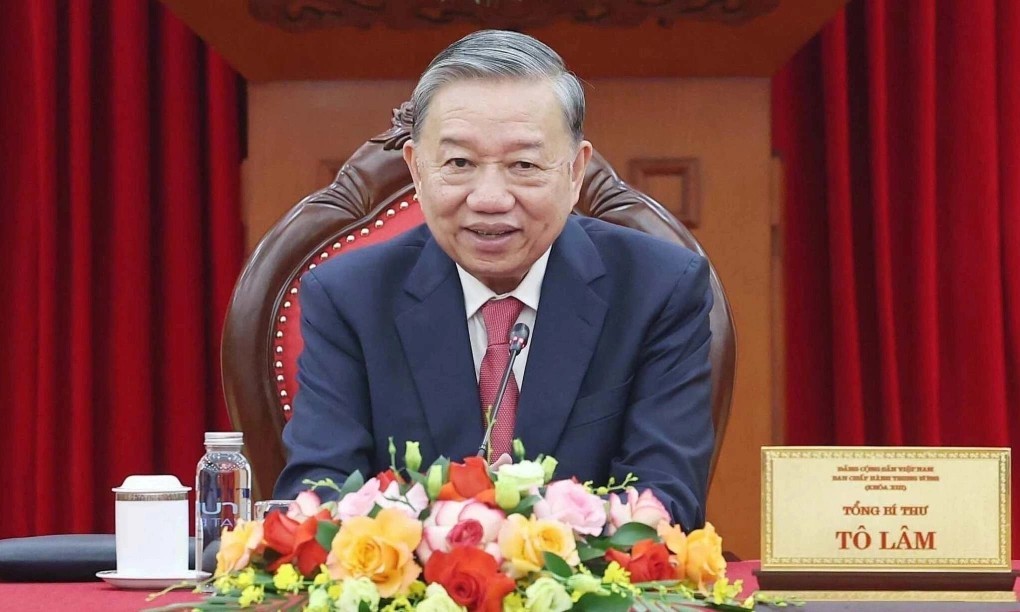| Vietnam News Today (Aug. 19) notable headlines Vietnam opens Southeast Asia’s largest national data center Vietnam values multifaceted cooperation with Bulgaria: ambassador New visa waiver policy to gives a big boost to Vietnam’s tourism industry Vietnam – rising star in FDI attraction Vietnamese Pho among four most healthy and yummy dishes in ASEAN Ecuador seeks to strengthen cooperation with Vietnam Vietnamese businesses to explore trade opportunities in US this October Australian Foreign Minister Penny Wong to visit Vietnam this week |
Vietnam opens Southeast Asia’s largest national data center
The Ministry of Public Security has launched National Data Center No.1, a critical infrastructure milestone for Vietnam’s digital future.
On the afternoon of August 18, the Ministry of Public Security held the grand opening of National Data Center No.1, officially launching its core data infrastructure. This event marks a major milestone in the formation of Vietnam’s national data center - hailed as the “heart” of digital transformation and the “brain” of a prosperous, forward-looking era.
According to the Ministry, the national data center has been constructed to meet the highest domestic and international standards in infrastructure, security, and environmental protection, including green energy practices. Designed and built to premium specifications, National Data Center No.1 offers modern, synchronized, and highly secure cloud infrastructure for government agencies and organizations, helping prevent redundancy and waste.
Data center recognized as largest in Southeast Asia
The facility, spanning more than 20 hectares, boasts a capacity of 1,300 server racks, making it one of the largest national-level data centers in Southeast Asia. It is also the first national center in Vietnam to receive the highest-level international certifications for disaster resilience and cybersecurity.
In today's digital age, the data stored within this center serves as a foundational resource, supporting data-related services, policy-making, digital government development, digital society and economy, and national security and defense. By officially putting this facility into operation, the Ministry is helping turn data into a true resource - an essential new means of production and the lifeblood of Vietnam’s digital economy, according to VNN.
 |
| Delegates press the button to inaugurate National Data Center No.1. Photo: Dinh Hieu |
Prime Minister commends Ministry's achievement
Speaking at the ceremony, Prime Minister Pham Minh Chinh praised the determination and leadership of the Ministry of Public Security, especially senior officials and data center leaders, for directly overseeing the project site. He also acknowledged the exceptional efforts of contractors and equipment suppliers in completing the project on time and with high quality.
The Prime Minister emphasized that the national data center is a key component in the government’s digital infrastructure strategy. “This project reflects the aspirations, confidence, and resilience of the Vietnamese people in general and the police force in particular - transforming the impossible into reality, the difficult into the achievable - embodying the spirit of 'Vietnamese Will, Vietnamese Intelligence, Vietnamese Aspiration',” he said.
Introducing the national digital ecosystem
At the event, the Ministry also introduced several core digital platforms and services developed to build a national digital ecosystem centered on centralized data. These include the National Data Sharing Platform, the operation of the National Public Service Portal from the new center, a government information system to support executive decision-making, and a Data Exchange Hub - an intermediary platform for connecting, sharing, and trading data between stakeholders.
With National Data Center No.1 now in operation, it will immediately begin serving Party and government agencies, citizens, and businesses in administrative procedures, executive functions, and digital economic and social development.
Looking ahead, the Ministry of Public Security plans to operate this center while simultaneously developing National Data Centers No.2 and No.3 according to a strategic roadmap.
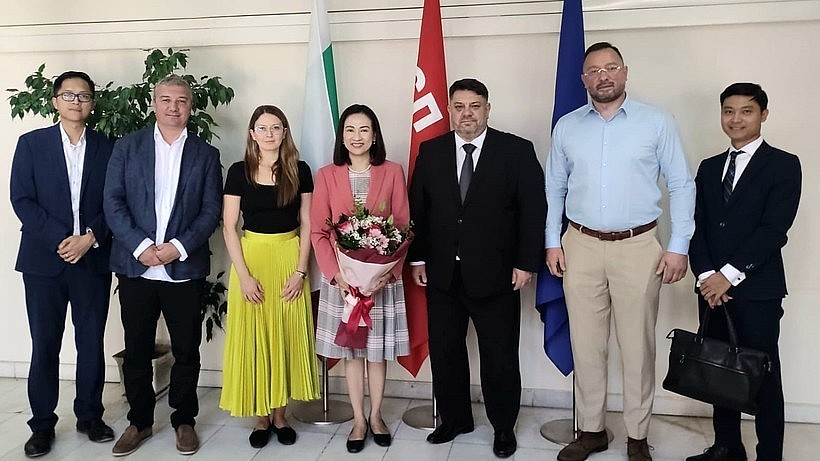 |
| From left: Vietnamese Ambassador to Bulgaria Nguyen Thi Minh Nguyet (4th), Chairman of the Bulgarian Socialist Party and Deputy Prime Minister of Bulgaria Atanas Zafirov (5th), and other delegates at the meeting (Photo: VNA) |
Vietnam values multifaceted cooperation with Bulgaria: ambassador
Ambassador Nguyen Thi Minh Nguyet recently held a working session with Atanas Zafirov, Chairman of the Bulgarian Socialist Party (BSP) and Deputy Prime Minister of Bulgaria, affirming that Vietnam always attaches importance to strengthening and developing the traditional friendship and multifaceted cooperation with Bulgaria, especially through the Party-to-Party channel.
Vietnam always attaches importance to strengthening and developing the traditional friendship and multifaceted cooperation with Bulgaria, especially through the Party-to-Party channel, Ambassador Nguyen Thi Minh Nguyet affirmed at her recent working session with Atanas Zafirov, Chairman of the Bulgarian Socialist Party (BSP) and Deputy Prime Minister of Bulgaria.
Zafirov noted that the BSP, formerly the Bulgarian Communist Party, has a traditional friendship with the Communist Party of Vietnam. He expressed his wish to promote Party-to-Party cooperation with the Southeast Asian nation, enhance high-level political dialogue, and exchange theories and policy-making experience. He stressed boosting youth cooperation, cultural and people-to-people exchanges, contributing to consolidating political trust between the two countries.
The BSP leader highly valued bilateral cooperation through the intergovernmental committee mechanism, proposing an expansion to the fields of economy, trade, investment, energy, science-technology, tourism, and labor. He also suggested making use of the Vietnam–EU and Vietnam–ASEAN cooperation frameworks and welcomed Vietnam’s new visa exemption policy for Bulgarian citizens, cited VNA.
Earlier, the Vietnamese diplomat met with several BSP ministers in the Bulgarian Government, including Minister of Environment and Water Manol Genov, Minister of Youth and Sports Ivan Peshev, and Minister of Labor and Social Policy Borislav Gutsanov, reiterating Vietnam’s commitment to promoting cooperation across all areas.
On the environment, Nguyet proposed establishing an official cooperation mechanism between the two countries’ ministries, with delegation exchanges, experience sharing, and technology transfer in wastewater treatment, waste management, pollution control, renewable energy development, biodiversity conservation, and resources management. She also called on Bulgaria to advocate for EU support for Vietnam in the circular economy, green economy, marine and forest conservation.
On sports, she suggested cooperation in training, coaching, sports science research, and stronger collaboration between the two national olympic committees. She also proposed facilitating Vietnamese teams’ training in Bulgaria, along with expert exchanges and experience sharing on an annual basis to improve Vietnam’s sports performance.
Manol Genov stressed the need to soon establish a cooperation mechanism between the two ministries and relevant agencies, ready for dialogue, knowledge and technology sharing, as well as expert and scholarship exchanges in Bulgaria’s areas of strength such as energy security, biodiversity, atmosphere, disaster prevention, and forest fire control. He also expressed Bulgaria’s interest in learning from Vietnam’s experience in marine and ocean economy development, affirming that Vietnam can count on Bulgaria’s support within the EU framework.
Ivan Peshev proposed delegation exchanges at all levels and training support for Vietnamese coaches and athletes in sports that Bulgaria has advantages.
New visa waiver policy to gives a big boost to Vietnam’s tourism industry
The Government has just issued Resolution 229, granting a 45-day visa waiver for citizens of 12 European countries, namely Belgium, Bulgaria, Croatia, the Czech Republic, Hungary, Luxembourg, the Netherlands, Poland, Romania, Slovakia, Slovenia, and Switzerland. The policy is in effect from August 15, 2025, to August 14, 2028, raising the total number of countries unilaterally exempted from visas by Vietnam to 24.
Earlier, under Resolution 44, citizens of 12 other countries, including the UK, France, Germany, Italy, Russia, were already granted visa-free entry. With this expansion, Vietnam now covers nearly all major tourism markets in Europe and Northeast Asia – the regions that contribute large numbers of international visitors with high spending capacity.
At the same time, the Government has issued Decree 221, allowing visa exemptions of up to five years for certain special groups serving socio-economic development needs.
A strategic move to boost competitiveness
Expanding visa waivers is seen as a “golden lever” that strengthens Vietnam’s competitiveness compared to other Asian destinations. The new policy not only encourages Western and Eastern European tourists who typically favour long holidays but also stimulates higher spending on premium services.
According to travel booking platform Agoda, in June Vietnam ranked among the top 5 most searched Asian destinations by European travellers for summer 2025, behind Malaysia, Japan, Indonesia, and Thailand. Notably, alongside traditional markets such as France, Germany, Russia, and the UK, emerging markets like Hungary, Poland, and Turkey recorded a surge in search volumes.
Statistics from the Vietnam National Authority of Tourism show in the first seven months of 2025, Vietnam welcomed over 12.2 million international visitors, representing a year-on-year rise of up 22.5%. European arrivals alone reached 1.5 million, a surge of 131.8%, far outpacing the overall growth rate. Russia, the UK, France, and Germany all posted triple-digit increases of 256.6%, 122.2%, 123.1% and 117.1% respectively, VOV reported.
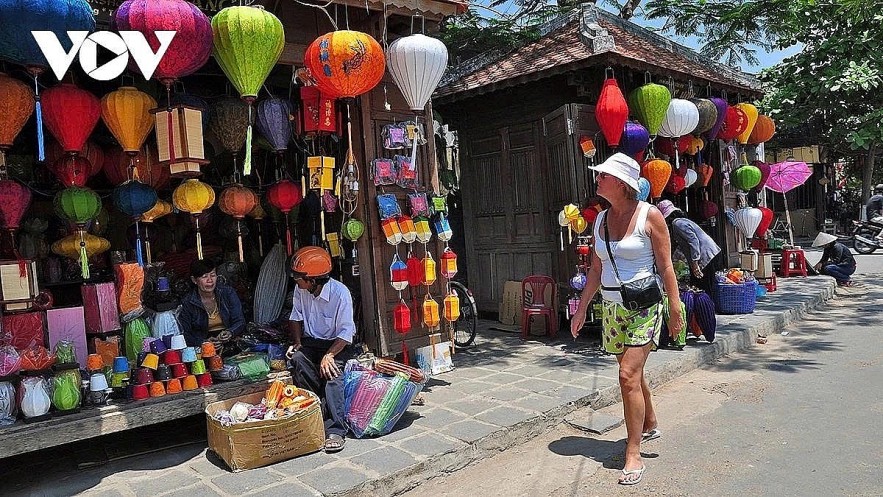 |
| European tourists generally stay between 8–12 days and spend a lot on luxury services in Vietnam. (Illustrative image) |
European tourists generally stay between 8–12 days, prefer 4–5 star services, and are drawn to destinations such as Hanoi, Ho Chi Minh City, Hoi An, Ha Long Bay, Sa Pa, Phu Quoc, and Nha Trang. Travelers from Poland, the Czech Republic, and Switzerland, in particular, are known for their willingness to spend on luxury resorts while also opening doors for trade and investment cooperation.
Ready for year-end peak season
This summer, the Vietnam National Authority of Tourism carried out a large-scale promotional campaign across France, Italy, Switzerland, the Czech Republic, and Poland, generating positive momentum. The delegation comprised representatives from various tourism management agencies, artisans and artists, as well as businesses in hospitality, travel, aviation, and localities.
The program indicates that the Tourism Authority is stepping up its promotion campaign in Europe to attract more visitors, a segment that remains modest in numbers but holds great potential for Vietnam. In addition to traditional markets such as France, the UK, Germany, and Russia, Vietnam is also opening up to emerging markets in Eastern Europe like the Czech Republic, Poland, and Hungary, which show significant promise thanks to the large Vietnamese communities there and the growing demand for travel experiences in Asia.
The recent visa exemption for 12 European countries will help reduce entry barriers, making it easier for tourists to plan their trips during the peak travel months at the end of this year and the beginning of next year. This period coincides with the winter season in Europe, when demand to escape the cold and seek warm destinations with golden sunshine and blue seas, such as Vietnam, is particularly high. With this visa boost and synchronized promotional efforts, Vietnam’s tourism industry is well-positioned for a strong breakthrough by the end of 2025, especially from the European market.
Vietnam – rising star in FDI attraction
Vietnam is emerging as a leading destination for foreign direct investment (FDI) in Southeast Asia, thanks to its dynamic young workforce, advantageous trade agreements, and stable political environment, according to an analysis published by thailandbusinessnews.com on August 18.
The article by Nguyen Trang and Boris Sullivan notes that Vietnam’s FDI story is one of relentless momentum. The country attracted 36.61 billion USD in registered FDI in 2023, up 32.1% from the previous year, underscoring its growing role as a manufacturing powerhouse.
Citing some reasons why Vietnam shines, the writing points out the economic vigor. The country’s economy is projected to grow 5–6% annually, supported by strong consumption, exports, and investment. Its political stability provides a predictable environment, a rarity in emerging markets.
In terms of demographic dividend, with a labor force of about 56 million and an average age of 34.1, Vietnam offers a young, skilled, and cost-competitive workforce, turning it into a preferred choice for labor-intensive industries like electronics and textiles, cited VNA.
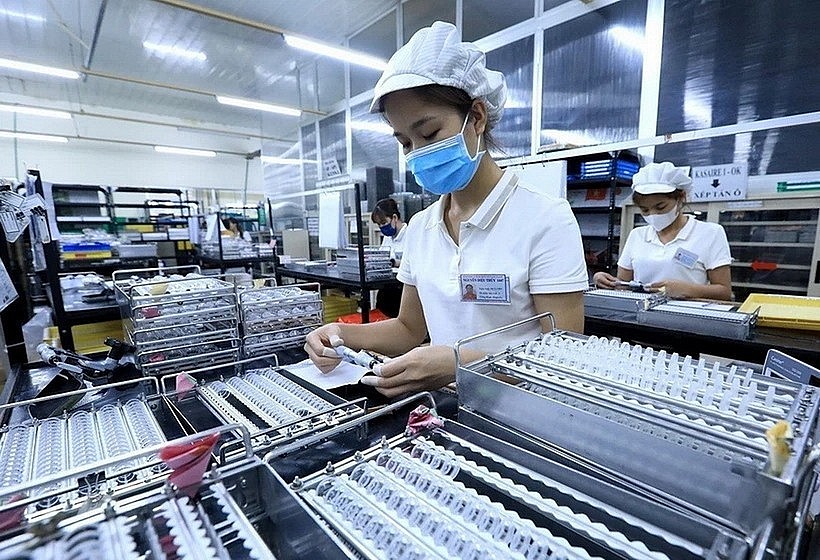 |
| Workers at the factory of a foreign invested company. (Photo: VNA) |
Regarding policy powerhouse, the writing says Vietnam’s government has rolled out investor-friendly reforms, including the 2020 Laws on Investment and Enterprises and the Public-Private Partnership Law. The EU-Vietnam Free Trade Agreement (EVFTA) is set to boost exports to Europe by 42.7% by 2025, making Vietnam a gateway to global markets. The government’s pro-business policies and increasing integration into global trade agreements, such as the CPTPP and RCEP, position Vietnam as a rising star in the region and making it a more attractive destination for long-term investment.
Vietnam also holds sectoral strength. High-tech industries, particularly AI and semiconductors, are drawing heavy investment from Japan, the Republic of Korea, and Singapore. Vietnam’s focus on high-tech industries has positioned it as a key player in global supply chains, particularly in electronics and telecommunications. Besides, real estate and renewable energy are also gaining traction.
The country’s strategic geographical location, coupled with its improving infrastructure and pro-business policies, further enhances its appeal to foreign investors.
Its FDI growth is outpacing others', driven by its economic dynamism, cost advantages, and strategic policies. The ability to attract high-tech investments and integrate into global supply chains has made it ASEAN’s FDI frontrunner, according to the article.
Vietnamese Pho among four most healthy and yummy dishes in ASEAN
The Nation, an English-language daily of Thailand, has named Vietnamese Pho (noodle) among the Top 4 most healthy and yummy dishes in ASEAN.
According to the media outlet, the ASEAN region is home to dishes that not only satisfy people’s cravings but also serve to nourish their body.
The beloved noodle soup is the flagship dish of Vietnamese cuisine in first place on the list. Made from aromatic herbs, spices, rice noodles, meat and vegetables, the delicacy is light yet satisfying.
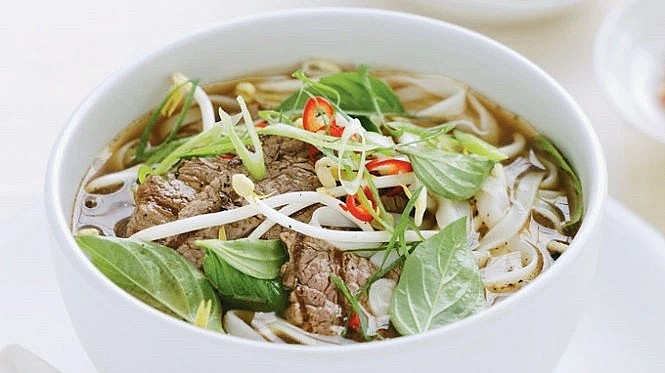 |
| Photo: VOV |
“It's packed with protein and essential nutrients, making it perfect for a balanced meal any time of day,” says The Nation.
The other three standout meals that prove gastronomy lovers don’t have to sacrifice flavor for health are Tom Yum Kung of Thailand, Gado-Gado of Indonesia, and Tam Mak Hoong of Laos.
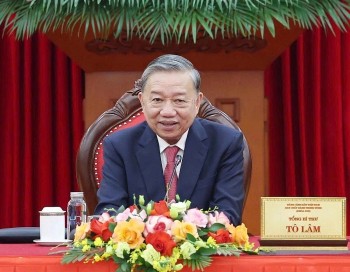 | Vietnam News Today (Aug. 15): Vietnamese and Cambodian Leaders Hold Phone Talks to Boost Cooperation Vietnam News Today (Aug. 15): Vietnamese and Cambodian leaders hold phone talks to boost cooperation; Foreign Ministry vows to boost promotion of Vietnamese language abroad; ... |
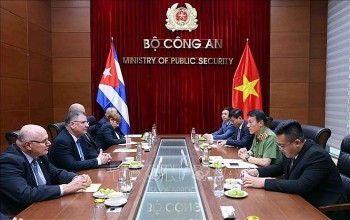 | Vietnam News Today (Aug. 16): Finland Backs Stronger Vietnam-EU Ties, Pledges Closer Business Cooperation Vietnam News Today (Aug. 16): Vietnam, Cuba enhance cybersecurity cooperation; Finland backs stronger Vietnam-EU ties, pledges closer business cooperation; Seminar seeks to promote Vietnam – ... |








